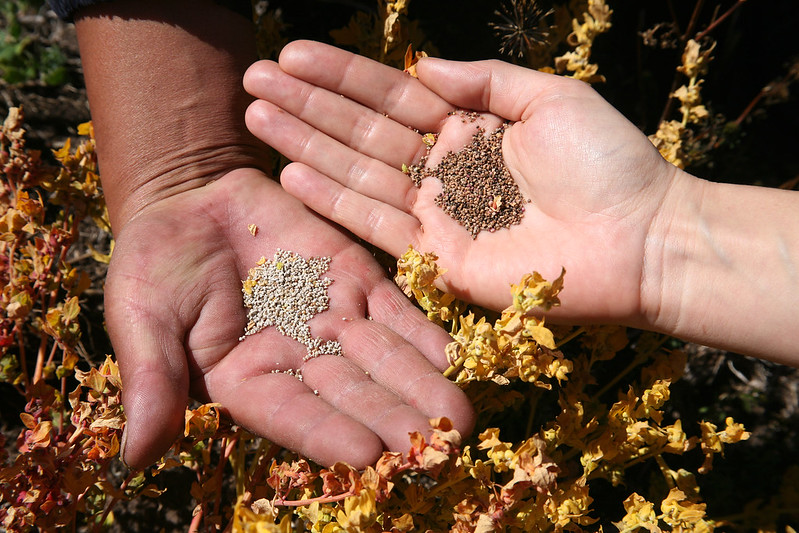Our Campaigns
The Global Forest Coalition supports and coordinates joint NGO/IPO campaigns for socially just and effective forest policy and the rights of Indigenous and other forest peoples. We work on the following campaigns:
Climate Justice & Forests
The Climate Justice and Forests campaign opposes corporate influence over climate and forest policy and exposes false solutions that harm ecosystems and communities, especially women, youth, and Indigenous Peoples. We defend forests, support community stewardship, and promote rights-based, gender-just approaches to climate mitigation for a fairer, more resilient world. Check out our dedicated campaign page to find out more about our work on climate justice.
Gender Justice & Forests
The Gender Justice and Forests Campaign promotes decolonial, feminist approaches to forest conservation that centre the rights, knowledge, and leadership of women in all their diversity. By supporting inclusive, community-led forest governance and dismantling intersecting systems of oppression, we work to protect forests while reducing gender inequalities and strengthening women’s access to decision-making and resources. Check out our dedicated campaign page to find out more about our work on gender justice
Unsustainable Livestock
Our Unsustainable Livestock Campaign challenges harmful policies and corporate influence over the food system. We advocate for redirecting subsidies toward agroecology, supporting pastoralist and Indigenous communities, enacting strong environmental and animal welfare laws, and promoting plant-based diets. Together with allies, we push for systemic change to build a gender-just, climate-resilient, and sustainable food future. Check out our dedicated campaign page to find out more about our work on unsustainable livestock.
Extractive Industries, Tourism & Infrastructure
Forests and communities are under threat from mining, fossil fuel extraction, mass tourism, and mega-infrastructure projects. Our campaign on Extractive Industries, Tourism and Infrastructure supports frontline communities in resisting harmful developments, amplifies their voices in global policy spaces, and advocates for rights-based and gender-just approaches. We push for an end to destructive mega-projects and promote truly sustainable pathways rooted in Indigenous knowledge, local stewardship, and gender and environmental justice. Check out our dedicated campaign page to find out more about our work on extractive industries, tourism, and infrastructure.
Your Support Amplifies Community Voices
Help us protect forests, empower communities, and fight for climate justice

